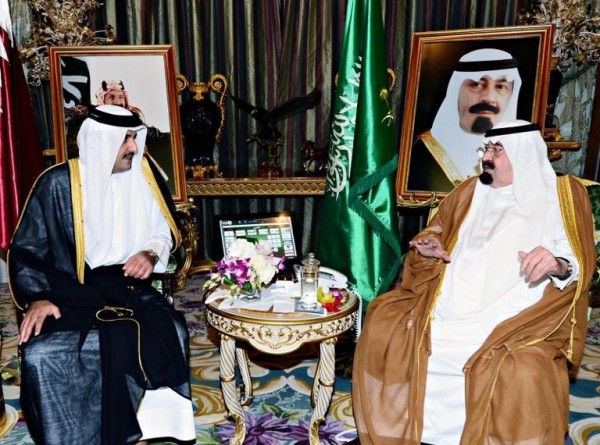CNN Reveals Secret Docs on 2013/2014 Riyadh Agreements with Gulf Dispute States

2017-07-11 - 3:49 p
Bahrain Mirror - CNN: Qatar made a series of secret agreements with its Gulf neighbors in 2013 and 2014 barring support for opposition and hostile groups in those nations, as well as in Egypt and Yemen.
The existence of the agreements has been known, but both the content and the documents themselves were kept secret due to the sensitivity of the issues involved and the fact that they were agreed in private by heads of state. The agreements were exclusively obtained by CNN from a source from the region with access to the documents.
The Gulf countries have accused Qatar of not complying with the two agreements, which helps explain what sparked the worst diplomatic crisis in the Middle East in decades.
In response to CNN questions, a Qatari spokesman said in a statement that it was Saudi Arabia and the UAE who "have broken the spirit of the agreement."
"A full reading of that text will show that the intent of the 2013/14 agreements was to ensure that sovereign GCC nations be able cooperate within a clear framework," said Sheikh Saif Bin Ahmed Al-Thani, director of Qatar's government communication office.
"Their demands -- that Qatar close down Al Jazeera, force the breakup of families, and pay 'compensation' -- are demands that bear no relation to the Riyadh agreements," he added. "Further, at no point did Saudi Arabia or the UAE use the mechanisms in the Riyadh agreement to communicate their concerns to Qatar."
The first agreement -- handwritten and dated November 23, 2013 -- is signed by the King of Saudi Arabia, the Emir of Qatar and the Emir of Kuwait. It lays out commitments to avoid any interference in the internal affairs of other Gulf nations, including barring financial or political support to "deviant" groups, which is used to describe anti-government activist groups.
The agreement, referred to as the Riyadh agreement, specifically mentions not supporting the Muslim Brotherhood, which the Gulf allies have repeatedly alleged Qatar supports, as well as not backing opposition groups in Yemen that could threaten neighboring countries.
A second agreement headlined "top secret" and dated November 16, 2014, adds the King of Bahrain, the Crown Prince of Abu Dhabi and the Prime Minister of the UAE. It specifically mentions the signatories' commitment to support Egypt's stability, including preventing Al Jazeera from being used as a platform for groups or figures challenging the Egyptian government.
The second agreement specifically mentions Al Jazeera, and not other media outlets like the Saudi-owned Al Arabiya. After the agreement was signed, Al Jazeera had shut down a channel dedicated to coverage: Al-Jazeera Mubashir Misr.
A supplemental document to the 2013 agreement signed by the countries' foreign ministers discusses implementation of the agreement.
It includes provisions barring support of the Muslim Brotherhood, as well as outside groups in Yemen and Saudi Arabia that pose a threat to security and stability of Gulf Cooperation Council countries, a six-nation group that includes Saudi Arabia, the UAE, Bahrain and Qatar.
- 2022-07-07Israel Reaches Record Trade Increase With Arab States Under Abraham Accords
- 2022-06-10Israeli PM Bennett Visits Abu Dhabi, Meets with UAE President
- 2022-06-10Israelis to be Allowed into Qatar for World Cup, Officials Say
- 2022-06-06Biden should not Visit Saudi, Meet Crown Prince: US Lawmaker Adam Schiff
- 2022-06-01Israel Signs UAE Free Trade Deal, Its First in Arab World